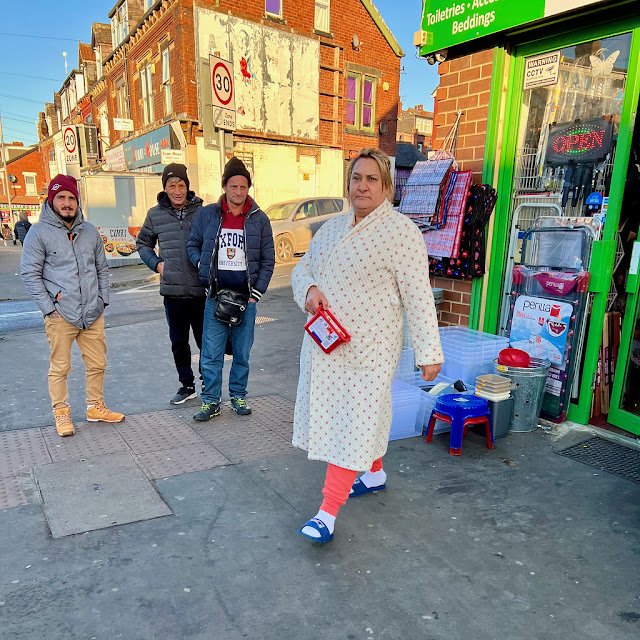 |
| She nipped to the shop in her nightgown to buy some washing detergent. |
A lot of people try to define street photography. Here is my view.
Street photographers often aim to document the human condition and the social, cultural, and political aspects of the places and communities they photograph. Street photography can be spontaneous and candid, with the photographer capturing unplanned or unscripted moments as they unfold, or it can be more planned and staged, with the photographer seeking out specific subjects or compositions to photograph.
Street photographers typically capture images of people, architecture, and other elements of the urban environment, often with an emphasis on capturing the atmosphere and energy of the place. Street photography can be documentary, capturing real life as it unfolds, as in the case of the lady returning from her errand, or more artistic and expressive, exploring themes and ideas through photography.
It is also amusing to see the reactions of the guys in the scene to the lady and me.
Thanks for reading.
Paul
Comments